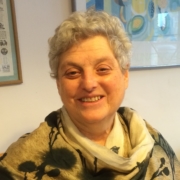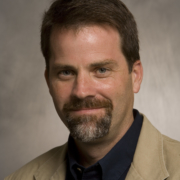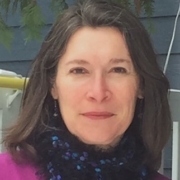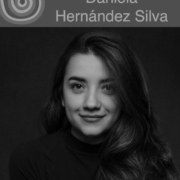Howard Prosser
Do elite schools have a social aesthetic?
Does privilege have sensory dimensions? Our guest today is Howard Prosser, lecturer at Monash University’s Faculty of Education, who recently co-edited a volume entitled In the Realm of the Senses: Social Aesthetics and the Sensory Dynamics of Privilege (Springer 2015). This volume won an honorable mention in the 2015-2016 Globalization and Education Special Interest Group book award.
Together with Johannah Fahey and Matthew Shaw, Dr. Prosser argues that “within elite schools there is a relationship between ‘complex sensory and aesthetic environments’ and the construction of privilege within and beyond the school gates. Understanding the importance of the visual to ethnography, the social aesthetics of the elite schools studied in this volume are captured through the inclusion of a series of visual essays that complement the written accounts of the aesthetics of privilege. The collection also includes a series of vignettes that further explore the sensory dimension of these aesthetics: touch, taste—though metaphorically understood— sight and sound. These varying formats illustrate the aesthetic nature of social relations and the various ways in which class permeates the senses. The images from across the different schools and their surroundings immerse the reader in these worlds and provide poignant ethnographic data of the forces of globalization within the context of elite schooling.”
Dr. Prosser spoke with FreshEd contributor Rolf Straubhaar.
Citation: Prosser, Howard interview with Will Brehm, FreshEd, 23, podcast audio, April 11, 2016. https://freshedpodcast.com/howardprosser/
Rolf Straubhaar 0:01
Howard, welcome to FreshEd.
Howard Prosser 0:44
Thanks for having me, Rolf. It’s a pleasure to be here.
Rolf Straubhaar 0:48
Now, for those who may just be hearing of the volume through the podcast, could you give a brief introduction to the book, its contribution to the field, and just what people might expect from it for those that haven’t read it and might be interested?
Howard Prosser 1:01
Yeah, sure. Well, the book really is an intervention in many ways, we like to think of it, around the way that social aesthetics can be brought into the social, scientific, and also education fields, particularly linking it to elite schooling and privilege. So, what we were trying to do in the book was to show how our study of elite schools, which is a larger project, which we’ll talk about, I’m sure, in a moment around the world, how these different elite schools have things that are very uncommon in the way that people experience these schools. And what I mean by that is that when you enter into the schools, an elite school elicits a particular feeling. What we wanted to do in the book was to capture how those feelings take place, or that particular affect to use a more social theory term. So, what we did was to break up the notion of social aesthetics into the five senses. So, dealing with sight, touch, taste, and sound. And throughout the book, we’ve interspersed little vignettes of our ethnographic experience. So, one aspect of the book is to present those experiences through the vignettes. Another aspect is to present our experiences of these schools, their similarities and contrasts, through visual essays. And then more traditionally, the other element is the writing of essays around this particular topic of social aesthetics and elite schooling. I think that that’s probably it in a nutshell.
Rolf Straubhaar 2:54
Great. How did you, in particular, individually, become interested in these various subjects and come into the project?
Howard Prosser 3:04
That is an interesting one. So, I should probably give some background to the project, which one of the other FreshEd podcasts outlined a little bit with Jane Kenway, who was leading the elite schools project, as we call it. So, it’s Elite Independent Schools in Globalising Circumstances, which brought together a range of education scholars, particularly who work in the field of sociology of education, to contribute to the discussion around the sociology of elite education that has started to become a little bit louder as a subfield. One of the main things that the project was hoping to do was to look at British tradition schools. So, in the traditional British public schools, as they call them, in various former colonies of the British Empire and how these schools were manifesting in today’s globalizing situation. How they were contributing to national leaders or leaders in the field of commerce, and also consider the way that these schools had local peculiarities but also global similarities. So, the scholars that Jane brought together had been working in the field for a number of years, but not specifically on elite education. So, Jane’s idea was to bring Fazal Rizvi, Cameron McCarthy, Aaron Koh, Johannah Fey, myself and Matthew Shaw were PhD students on it, into the project to get our unique take on these particular locations. Some of which, or all of which really, we had links to through our own professional life or personal life in their pasts. So, I think that the thing that brings all the scholars together examining these particular schools was an interest in education and interest in sociology, and a particular interest in social relations and how they manifest globally and locally in the contemporary world. And I should also say that there is a particular historical element to our approach to these elite schools as well because by virtue of the schools themselves privileging tradition as part of schooling, but also because we wanted not just to get a contemporary snapshot of the schools, but to recognize how global forces influence these schools as part of a longer history of colonialism, which can then be linked to contemporary globalization.
Rolf Straubhaar 6:13
So, how were the field sites selected? I would assume the majority of them, if not all of them, were former British colonies. But how was it chosen where you would do this project?
Howard Prosser 6:24
Yeah, that’s an interesting, interesting question. Really, it speaks to the diplomacy of ethnographic fieldwork. So, I alluded to the fact that some of the participants had connections to these particular sites. And so, we really leveraged those previous personal connections to areas such as India, Hong Kong, Singapore, Barbados, South Africa, as well. And also, then had to rely on other connections in particular places. So, we identified nation states which we desired within the project. And some of which we didn’t end up looking at, say, Egypt or Ghana, or Malaysia, which were on our list. And my own study in Argentina was interesting in that it was part of the informal empire of Britain but added a Latin American aspect to the study, and therefore gave us more of a global scope as well. So, I would say that selecting them was a matter of saying, “Well, what are the former British colonies?”, examining strategically what our connections with them were, and then a little bit of good fortune as well in managing to get into the schools. And I’d add to that as well, you know, Cyprus is a case in point, because Matthew’s experiences there were interesting because he was allowed into the school but the experiences of different scholars in the schools wasn’t always one of welcoming. So, there’s always a degree of resistance, which Matthew found to a certain extent within his school too.
Rolf Straubhaar 8:30
And this resistance you’re talking about that sometimes folks found, which I think is a common experience of anyone that’s done ethnography, did for the most part, those people that already had pre-existing contacts, do fieldwork in the sites where they had contacts? Or how did that get split up?
Howard Prosser 8:50
Yes. Yes, they did. So, we had particular skulls, like Fazal, for example, spent time in India. Those who were the key leaders of the project, particularly Jane and Jo had experience in multiple sites. So, it’s been explained in her discussion with Will. This was seen as a multi-sited global ethnography. And part of the particularity of the study is that the ethnographers weren’t necessarily spending large amounts of time in these sites. The fieldwork was often short, sharp, punctuated moments of ethnographic fieldwork. So, Jane and Jo in particular went to multiple sites, and Aaron, as well ,explored a couple of other sites as well. So, yes, there were some with particular affiliations with those schools and with those nation states, but others were going in completely new to the areas as well, which gave a richness to the research that we were actually doing.
Rolf Straubhaar 10:11
And in the same way that any ethnography, kind of, has the potential insider-outsider dynamic, to a certain degree, some folks were double outsiders in that they were coming fresh into a site that they had no contact with whatsoever.
Howard Prosser 10:27
Exactly, exactly. Which is the beauty of it, really, and the messiness of ethnographic practice that I think prior to going into the field, we were very fearful of. How am I going to be accepted? Am I going to be allowed in? Will I understand things? Or perhaps, mainly to a degree of complacency on the part of those who were like, “Well, I know this particular side”. And so, it’s that issue that we have to deal with within studying the outsider-insider, I think it’s an interesting one, not only in terms of cultural experiences but also social relations, and particularly when it comes to class. Because as we’re exploring these elite institutions, we all have our own autobiographies about how our own schooling, or our own politics sits versus these elite institutions. And I would also add to that that those personal experiences and also political proclivities don’t necessarily, or shouldn’t, predispose any kind of prejudicial approach to these elite schools as well. And so, we were mindful of trying not to bring those ways of thinking into the schools. And using that idea then, is that, recognizing what seems familiar and making it unfamiliar, looking at what is unfamiliar, and making that familiar as well. And going through that process was something that we were very much aware of.
Rolf Straubhaar 12:03
Now, how did -because in addition to giving a lot of rich field note data from this larger project that Jane Kenway outlined in her interview with Will, one of the main focuses of this book in particular was more methodological. A focus on visual ethnography and social aesthetics. How did that come about?
Howard Prosser 12:27
Well, I think it’s by virtue of the data collection really, in that it’s that classic thing where more photos are taken now than ever, in any time in history. So, when you are actually trying to make sense of the site, and it’s kind of a little bit of ethnographer as tourist, in some ways, we were taking lots of photos. And what do we do with those? And how do these photos give a better sense, or a different sense, of what the schools that we were exploring actually felt like? And so, bringing this idea of the large corpus of photographs into the actual study itself, and listening, as I said, to the kind of feeling of these elite schools was something that we wanted to explore. Because, after all, if we’re every day more and more engaging with this visual experience, or if our social life is mediated through these kinds of visual experiences, we wanted to say, “Well, how is it that these elite schools are participating in that on the one hand? And also, how are we reading the elite schools through these kinds of mediated experiences”? I would add a second point to that, which is that -and it links us to the book then- the approach to social aesthetics that we drew upon was that of the ethnographic filmmaker and anthropologist David MacDougall, whose Doon School Chronicles is a series of films -beautiful, beautiful films- which in some ways are meditations on the social experience of being in an elite school in India at the turn of the century. So, he was taking them in the late 1990’s and early 2000’s. So, what we found is that his own study resonated with our interest in the sociology of elite education. We also were interested in exploring different methodological approaches to the sociology of elite education rather than merely writing about it. And that we had lots of images which often resonated with each other from these different schools. So, in many ways, and I know lots of listeners are interested in comparative education, we wanted to explore how these schools looked very much the same in their particular aesthetics. You know spatially, that they were deliberately presenting in gardens. And we have photos in the books of all of the busts of different leaders of the British Empire or the particular schools themselves. And we wanted to see how those similarities then really could be captured in some kind of ethnographic form. Now MacDougall uses film and uses it very well. And in our book, and he very generously wrote an afterword, which explores the limitations around writing about these sorts of sensory experiences and social aesthetics. And so, we wanted to present a means of experiencing elite school and through visual which we privilege in the book, even though it’s just one of the senses we talk about, alongside descriptions of other sensory experiences of privilege.
Rolf Straubhaar 16:18
In addition to this edited volume, because we know this came from a much larger project, are there any other publications that interested listeners should be looking for?
Howard Prosser 16:29
There are. The elite school’s group has an edited collection which is being worked on and should be put out towards the end of the year. There’s a number of publications that have come out of the project itself, which are listed on the -if you google elite schools project at Monash, there’s a list of publications that will come out of that as well. Jane and Aaron have just put together a book on elite education as part of the Routledge series that Lois Weiss is putting out. I’m trying to remember the title, but it’s gone from me. And also, we’ve had a special issue of Globalisation, Societies, and Education come out in 2014 I think that was. So, there are a number as well.
Rolf Straubhaar 17:39
Great. Do you know if the project is pushing forward in any other forms? Say, even if data collection from this particular project is wrapped up, if any of the scholars involved are pursuing this line of inquiry further in elite schooling or in the British school system?
Howard Prosser 17:58
Yeah, yeah. They are. The project itself is continuing in a kind of secondary form, which is that it was a five-year Australian Research Council funded project, which is now finished. But Jane Kenway is continuing to work with the data that we’ve collected to produce some further work on elite schooling. There’s two other PhD students here at Monash who are working on elite schooling not necessarily in the British Empire. One who’s working on Israel, although that fell under the rule of the British Empire for a period. And another who’s exploring Poland and how the elite schooling system there has shifted in the post-communist context as well. So, there’s certainly more work being done that’s coming out of it. And I’m continuing to produce a couple of things out of it as well. My exploration of a school in Argentina will likely be put out as a book, hopefully this year or next year. And as for other scholars, I can’t comment specifically on them, but I know that they are certainly interested in the way that the ongoing discussion around elite schooling can be contributed to. Because I think the one thing that the elite schools project that we’ve been putting together has been instrumental in is expanding the discussion of elite schooling beyond a kind of transAtlantic or Anglophone discussion.
Rolf Straubhaar 19:49
Well, wonderful. It’s a fascinating volume and we’re happy to try and bring some further attention to it through the award and all the best. Thank you so much for coming on FreshEd.
Howard Prosser 19:58
It was my pleasure, Rolf. Thank you very much for having me.
Coming soon
Coming soon









